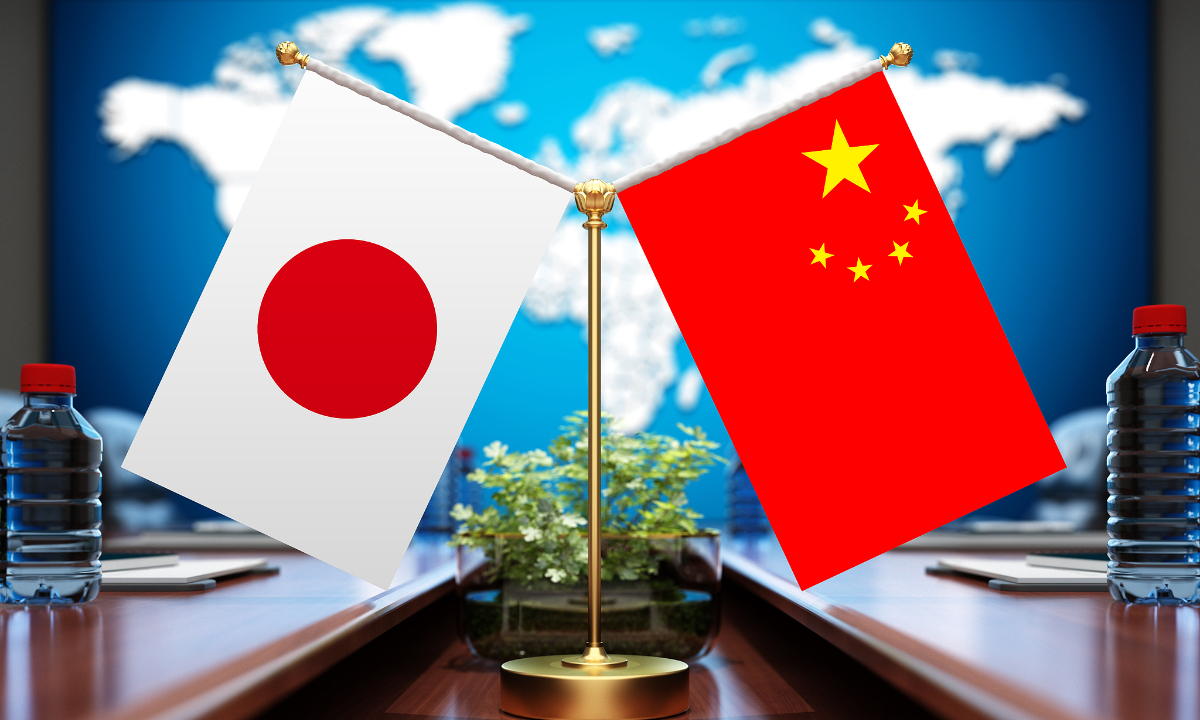
Photo:VCG
China and Japan reached a four-point agreement on the discharge of Fukushima nuclear-contaminated water, in which both sides agreed on Japan establishing a long-term international monitoring arrangement and allowing stakeholders including China to conduct independent sampling and monitoring.
China's firm opposition to the discharge of nuclear-contaminated wastewater remains unchanged. The agreement allows China to conduct independent monitoring and take samples, ensuring timely access to comprehensive and accurate data. This enables swift action to prevent any discharges that do not meet safety standards and elevates international monitoring of Japan's move to an unprecedented level, analysts said.
According to the agreement, Japan explicitly commits to fulfilling its obligations under international law, doing its utmost to avoid leaving negative impact on human health and the environment, and conducting continuous evaluations of the impact on the marine environment and marine ecosystems.
Given the concerns of China and all other stakeholders, Japan welcomes the establishment of a long-term international monitoring arrangement within the International Atomic Energy Agency (IAEA) framework covering key stages in the discharge of the nuclear-contaminated water, ensuring that China and all other stakeholders can carry out independent sampling and monitoring as well as inter-laboratory comparisons (ILCs), according to the agreement.
Japanese Prime Minister Fumio Kishida said Friday that during his phone call with IAEA Director General Rafael Grossi, they agreed to involve third parties including China in the monitoring of the discharge of the Fukushima nuclear-contaminated water, The Japan Times reported.
Chinese Foreign Ministry spokesperson Mao Ning said at a press conference on Friday that on August 24, 2023, the Japanese government unilaterally began discharging nuclear-contaminated water from the Fukushima plant, ignoring international questioning and opposition. As one of the most important stakeholders, China has consistently opposed this irresponsible move.
In line with the spirit of the discussions between the leaders of both countries regarding resolving the Fukushima nuclear-contaminated water issue through consultation and negotiation, China held over ten rounds of intensive talks with Japan and relevant international organizations, leading to today's announced agreement after tireless efforts, Mao noted.
China firmly opposes Japan's unilateral initiation of the discharge, and this position has not changed, Mao said, noting that the agreement reached by China and Japan is intended to urge Japan to effectively fulfill its obligations under international law and its responsibilities for safety oversight. China hopes the international community, especially key stakeholders, will work together to closely monitor Japan's adherence to its commitments.
There have been concerns about the incompleteness and lack of scientific rigor in the data provided by Japan and the IAEA. China being given access to conduct independent sampling and monitoring marks a significant breakthrough, Luo Zhiping, a research fellow from China Institute of Atomic Energy, told the Global Times on Friday.
The Japanese government's plan to dump nuclear-contaminated water will continue for at least 30 years. To ensure that all measurement data is reliable and credible, it is crucial to achieve independent operations throughout the entire process, from sampling to measurement. China's independent, effective, and long-term participation can help Japan enhance the reliability of its data, address related scientific issues, and strengthen oversight of Japan's actions, said Luo.
Luo noted that dumping the nuclear-contaminated water from Fukushima into the ocean is an unprecedented and concerning move. Given the current levels of monitoring and scientific understanding, even if some data suggests "safety," absolute safety cannot be guaranteed due to the many unknowns that remain for humanity.
Upholding the principle of being responsible for the health and safety of future generations, China firmly opposes the discharge of nuclear-contaminated water from Fukushima and has made significant efforts to address this issue, said the expert.
The agreement does not indicate a shift in China's position on the Fukushima nuclear-contaminated water discharge, nor does it signify a conclusion to the matter. It represents a new beginning - to bring Japan's discharge operations under effective international oversight, which will better enable the concerned countries to protect the health and safety of their citizens and the marine ecological environment, Xiang Haoyu, a research fellow at the China Institute of International Studies, told the Global Times.
No immediate lifting The agreement released on Friday also mentioned issues relating to China's suspension of imports of all aquatic products originating from Japan, saying that it has taken temporary emergency precautions against aquatic products of Japanese origin according to relevant Chinese laws and regulations and WTO rules.
After China participates substantively in the long-term international monitoring within the IAEA framework and the independent sampling and other monitoring activities by participating countries are carried out, China will begin to adjust the relevant measures based on scientific evidence and gradually resume imports of Japanese aquatic products that meet regulatory standards, according to the agreement.
Chinese Foreign Ministry spokesperson Mao Ning stressed on Friday that reaching an agreement does not mean that China will immediately resume imports of Japanese aquatic products.
"We will engage in technical consultations with Japan and gradually restore the import of compliant Japanese aquatic products on the premise that they fully meet China's requirements. The outcomes of these consultations and any policy adjustments will be promptly made public," Mao said.
China has set a series of prerequisite conditions, reflecting a commitment to the health and safety of the public. It is certain that all seafood products circulating in the Chinese market meet relevant standards, said Luo.
Under the premise of ensuring safety, relevant measures may be gradually relaxed to align with both sides' common interests. Resolving this could also positively enhance the atmosphere of China-Japan relations, said Xiang.




